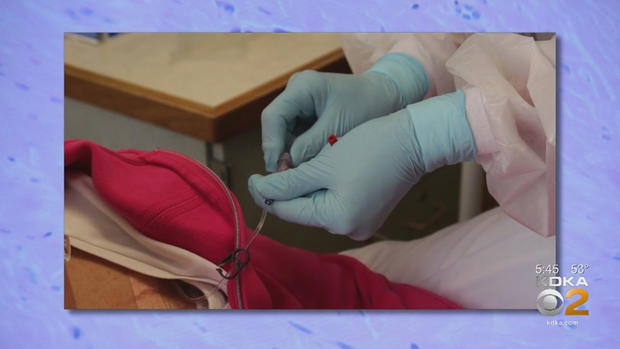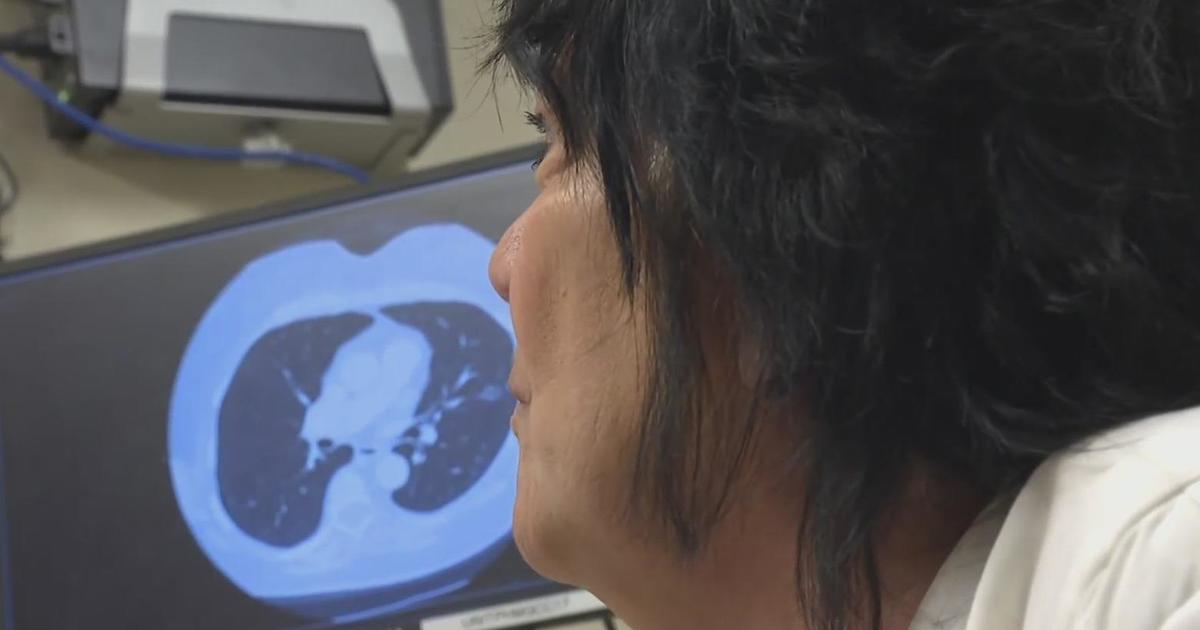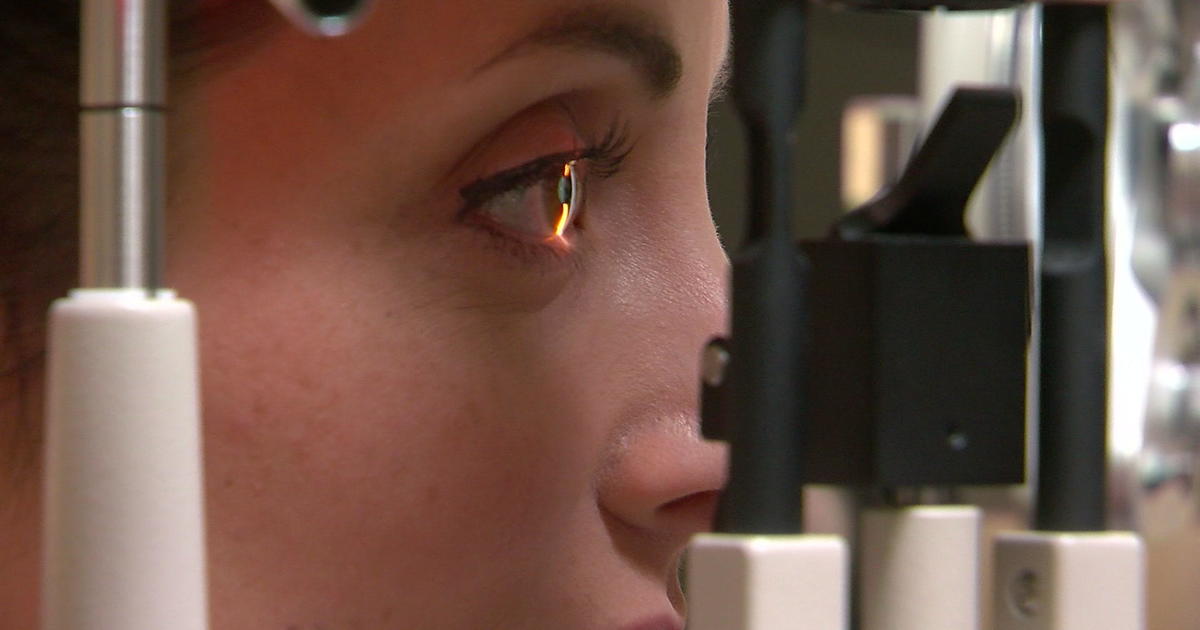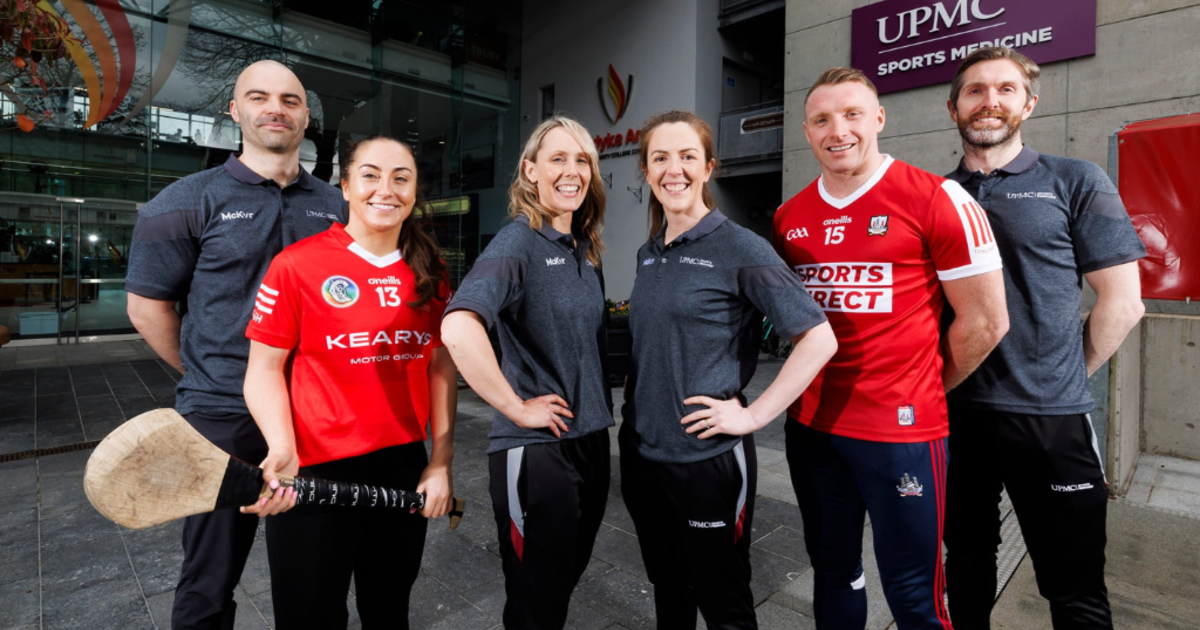New Drug Targets Aggressive Subtype Of Breast Cancer
PITTSBURGH (KDKA) - As a 31-year-old newlywed and mother of a 2-year-old, breast cancer was the last thing on Aubrey Morgart's mind until she found a lump in her left breast. Her doctor immediately sent her for a mammogram.
"From the mammogram, they sent me to ultrasound, and then back to mammogram and then back to ultrasound. And at that point, I knew something was up," she said.
Doctors diagnosed Aubrey with HER2 positive breast cancer.
"Historically, patients who had HER2 positive breast cancers did really poorly. It was a very aggressive subtype," Dr. Shannon Puhalla, a breast cancer specialist at UPMC says.
But with the development of drugs that target HER2, in combination with chemotherapy, many women have responded well. When their tissue is sent to the lab, the doctors see no cancer cells under the microscope.
But in some women, cancer cells persist.
So, for those women, doctors studied a new drug called TDM1. About 1,400 women participated in the landmark study.
After chemotherapy, radiation and surgery, they randomly got standard treatment with a HER2 targetting drug or TDM1. It's three hours, IV-given every three weeks for a year.
Doctors were pleasantly surprised by the TDM1 group. With the drug, the risk of the cancer coming back or death went down by 50 percent.
"It was surprising how much of a reduction was seen," says UPMC breast cancer researcher Dr. Priya Rastogi. "It was really exciting results."
TDM1 is now FDA approved.
"That study was practice-changing," says Dr. Puhalla.
The drug does have side effects including fatigue, numbness, bone and muscle pain, low blood counts and high liver tests. But they often go away with a lower dose of the drug.
After chemo, radiation and surgery, Aubrey got TDM1 as part of the study at UPMC Magee Womens Hospital. And she did have a few side effects.
"I would drive out, and then be told your liver levels are too high, come back next week and we'll try again," she said.
Frustrating for anyone but especially Aubrey, since she lives in Johnstown, a two-hour drive to Pittsburgh. "We just made the best out of it, and we'd go to lunch, and then head home afterwards."
Doctors also watched her heart function every few months, even after the last IV.
It's been four years since Aubrey completed her treatment.
"I'm doing great, and you know, I'm here."
Grateful to be alive and to have played a role in helping to save the lives of other women just like her.




